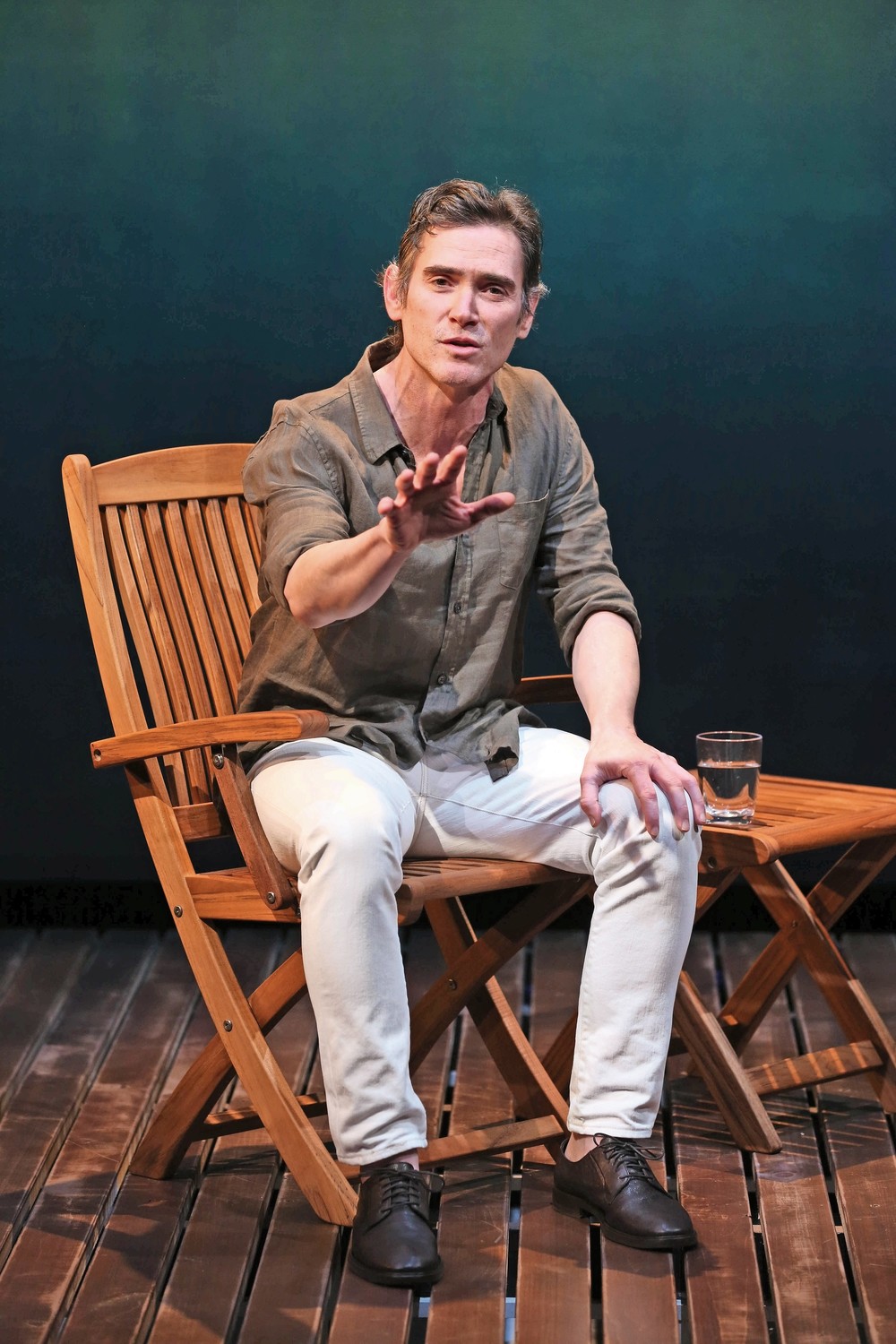‘Harry Clarke’ — Exploring the mask behind the man
Lies are popular nowadays.
Everything is in place for lies to spread. And no matter what we believe, we can’t ignore them.
The news cycle roars 24/7. Big media throbs in our pockets.
With such a cascade of stories, and stories about hoaxes, and perpetuated hoaxes which become stories themselves — the distinctions of “fake” and “real” start to blur. Fatigue and indifference set in, then a desire to escape.
And what better time for the con man to play his cards, or for the pretender to seize the crown?
Along comes David Cale’s intimate, sprawling “Harry Clarke,” brought to the Minetta Lane Theatre after a run last year at the Vineyard. And though it makes no reference to the present political moment, the play brilliantly tracks the corrosive power of deception, as here the lies radiate even further outward from one desperate soul.
We all need something to believe in, and in playwright Cale’s capable hands, we see the liar concoct his lies, and the liar’s giddy faith in his outrageous schemes. We always know the truth, even as we watch the deceptions unfold. And we see all along how the imposter’s victims become unwitting accomplices, and we understand completely the motivations of all in a tangle of need and vanity.
The shimmering membrane of the lie is the perilous roadmap that courses through the landscape of this fascinating drama.
We see both sides, as well as the inner world of the hero, a fragile tempest of doubt. We see how lies grow, from the early protective indulgences of this insecure man, to his whoppers in all their naked audacity — complete with their escalating toll on the duped.
All is told in a dazzling solo performance by Billy Crudup. This nimble actor summons up a vivid gallery of people played and ensnared by the charms of the title character, a manufactured smoothie who escapes into a false identity to shield himself from his own shattered ego. The performance is riveting, full of twists and turns, and wild veers between swagger and meltdown.
Leigh Silverman’s direction enhances the sense of both outrage and stillness, which drive this mesmerizing performance. Both she and Crudup mine the abundant humor that hovers around the dark turns of the plot. The lighting design of Alan C. Edwards give stark definitions to Alexander Dodge’s generous open stage.
And “Harry Clarke” is very much a New York tale, where a striver from the Midwest reinvests himself so that both a tractor and a yacht bookend his loop from youth to perverse glory, and back again.
The devil is in the details. And in this powerful work, we get to know why Satan grins. He’s all around us, and we don’t even know it.






